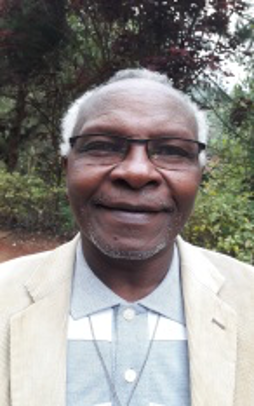
Peace is with you. My name is Peter Kimeu Ngui, the Founder and CEO of Decent Living Institute of Organic Farming with extensive experience on reflective peace and partnership building in Africa.
Is there anything like a ‘just world’? Can peace be ‘sustainable’? These two closely related questions must be in mind of evaluators of peace for sustainability in a community long after the funding expires. According to Catholic Relief Services’ Justice Lens, three key conditions that must exist in the vision of a just world and used by all sustainable peace evaluators.:
(1) sustainable right relationship for all humanity and nature
(2) the transformation of injustices in society, structures and policies with
(3) fairness of rights and responsibilities for sustained peace to all creation
The process of reflective peace building evaluation, including participatory creation of sustainability indicators demands a collaborative effort by all the stakeholders. This includes victims, perpetrators, peace builders/ advocacy agents who are necessary to establish and maintain a just environment.
Step one of the process involves reflecting on eight keys principles drawn from Pope Francis’ letter that awaken the conscience and human rights standards which fit into an acronym (CORDSSSS) for easy remembrance; Common Good, Option for the Poor, Rights and Responsibilities, Dignity and Equality, Social nature, Subsidiarity, Stewardship and Solidarity. Each team reflects on:
- the definition of each principle
- discussing what their world would be like if the principle was fully lived
- what would be sustainable peace indicators (e.g. Increased peaceful resolutions administered by the community; peaceful co-existence by people in violent conflicts; reduced rape)
- what needs to be different in the world (location) they live in?
Step two of the process is scenario building using the Appreciative Inquiry method that engages the participants in the evaluation. This involves finding out what:
- sustainable values, customs and traditions
- policies and structures/ institutions exist in the community that promote/ advocate, promote, establish and maintain, monitor and evaluate for sustainable peace building
- the participants are led to dreaming of a just environment in their community and what needs be improved and put in place for this scenario to be realized.
Lessons Learned:
The evaluation teams are always and immediately energized to pursue the best scenario for peacebuilding, using the resources locally available. The reflective peacebuilding process engages participants on real issues that directly affects the community, that the community is fears, worries, concerned with and they are immediately empowered with knowledge, using familiar traditional approach to resolve the violent conflict, and they self-discover that power to transform is with those engaged in the conflict.
The possibility of a just world becomes a reality amassing greater numbers of individuals to work for peace and work through these processes.
Lessons learned are self-created from local case study evaluation processes and appeal greatly to most of the community members
Rad Resources:
- CRS Peacebuilding Integration Course
- Caritas Peacebuilding Training
- Appreciative Inquiry
- Laudato Si Papal Encyclical
This week, AEA365 is celebrating Ex-post Eval Week during which blog authors share lessons from project exits and ex-post evaluations. Do you have questions, concerns, kudos, or content to extend this aea365 contribution? Please add them in the comments section for this post on the aea365 webpage so that we may enrich our community of practice. Would you like to submit an aea365 Tip? Please send a note of interest to aea365@eval.org. aea365 is sponsored by the American Evaluation Association and provides a Tip-a-Day by and for evaluators.

Hi Peter,
I teach at Eastern Mennonite University in the undergraduate Peacebuilding program and in the Center for Justice and Peacebuilding in the graduate program. I also consult on the side. I would enjoy connecting with you and hearing more from you. My email address is: matt.tibbles@emu.edu
Thank you.
Matt Tibbles